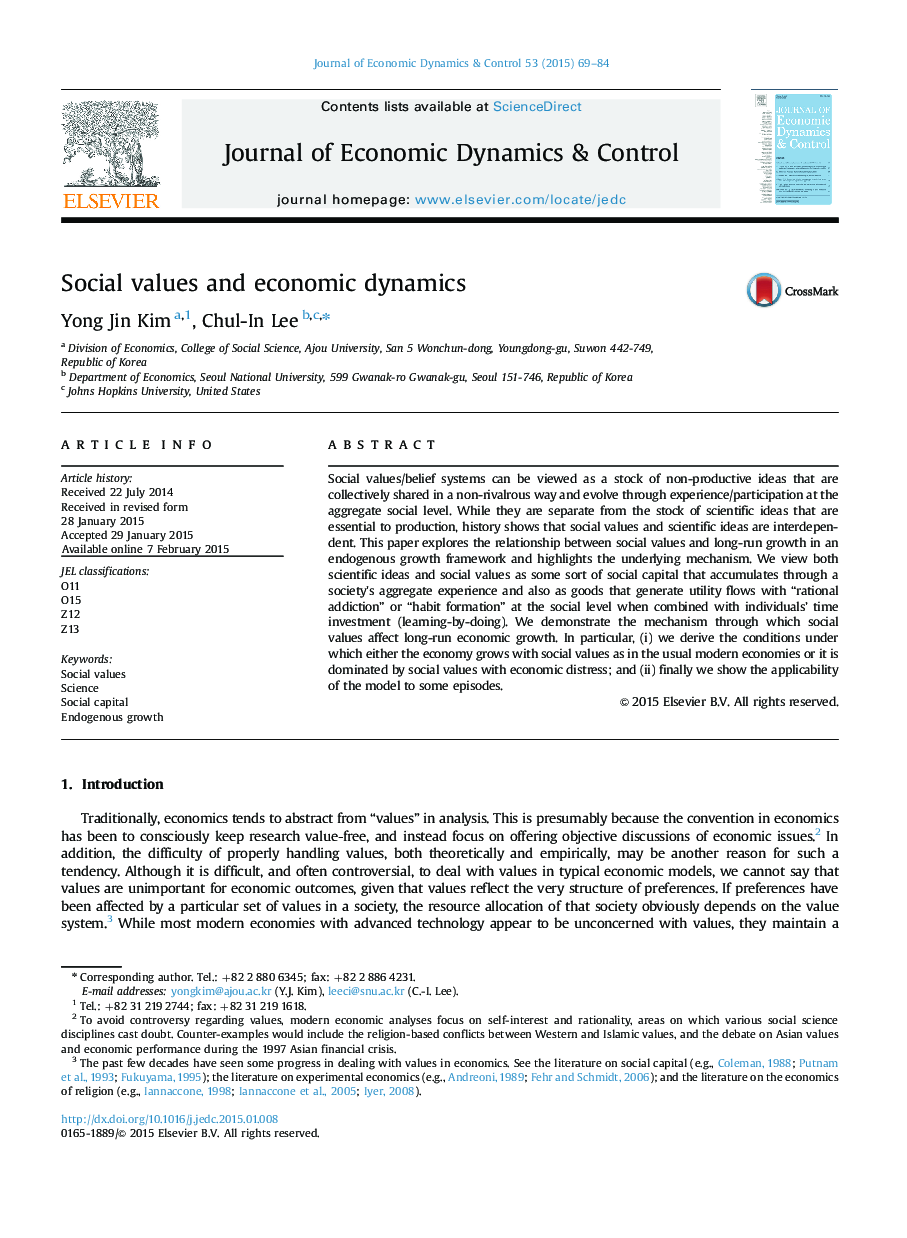| Article ID | Journal | Published Year | Pages | File Type |
|---|---|---|---|---|
| 5098310 | Journal of Economic Dynamics and Control | 2015 | 16 Pages |
Abstract
Social values/belief systems can be viewed as a stock of non-productive ideas that are collectively shared in a non-rivalrous way and evolve through experience/participation at the aggregate social level. While they are separate from the stock of scientific ideas that are essential to production, history shows that social values and scientific ideas are interdependent. This paper explores the relationship between social values and long-run growth in an endogenous growth framework and highlights the underlying mechanism. We view both scientific ideas and social values as some sort of social capital that accumulates through a society׳s aggregate experience and also as goods that generate utility flows with “rational addiction” or “habit formation” at the social level when combined with individuals' time investment (learning-by-doing). We demonstrate the mechanism through which social values affect long-run economic growth. In particular, (i) we derive the conditions under which either the economy grows with social values as in the usual modern economies or it is dominated by social values with economic distress; and (ii) finally we show the applicability of the model to some episodes.
Related Topics
Physical Sciences and Engineering
Mathematics
Control and Optimization
Authors
Yong Jin Kim, Chul-In Lee,
